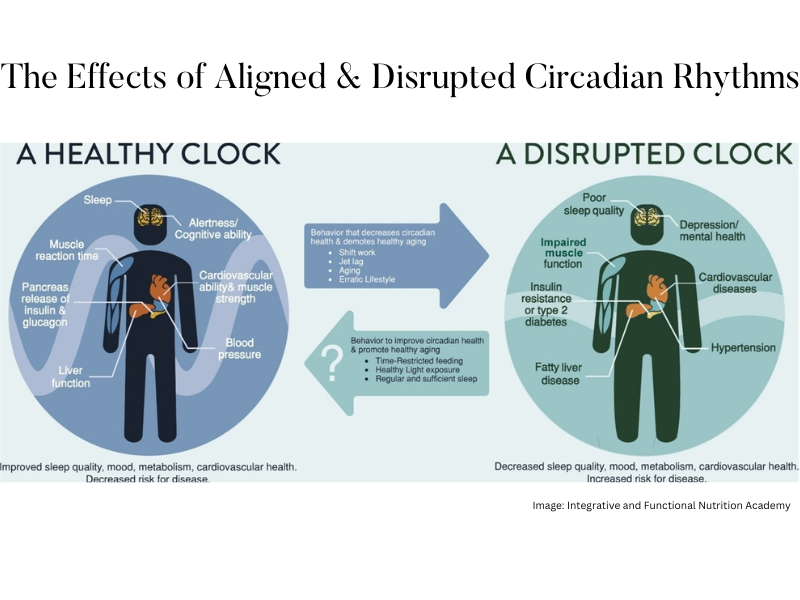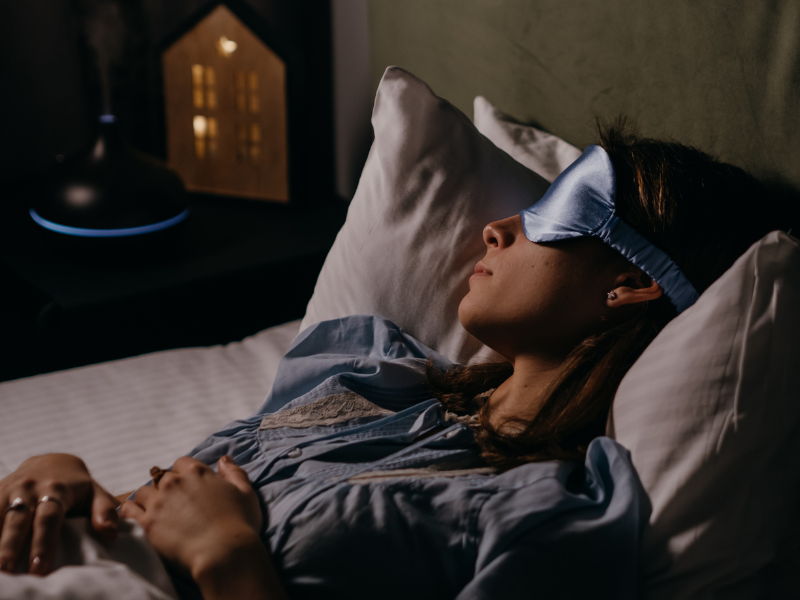Circadian Rhythms & Health: How to Reset Your Body’s Natural Clock
Are Circadian Rhythms Just a Wellness Buzzword?
If you’ve ever heard the term circadian rhythms and thought it sounded a bit “woo woo,” you’re not alone. Many people associate it with vague wellness trends rather than hard science. But here’s the truth: circadian rhythms are a fundamental aspect of human biology, backed by decades of research in fields like neuroscience, chronobiology, and endocrinology. Understanding and working with your circadian rhythm could be the missing piece in your health puzzle—especially if you often feel drained, experience hormone imbalances, or struggle with sleep.
What Are Circadian Rhythms?
Circadian rhythms are 24-hour cycles that govern nearly every biological process in your body. Often referred to as your internal clock, they influence:
- Sleep-wake cycles
- Hormone production (including cortisol, melatonin, and insulin)
- Metabolism and digestion
- Energy levels and mood
- Cognitive function and brain health
These rhythms are controlled by the suprachiasmatic nucleus (SCN)—a small but powerful region in the brain’s hypothalamus. The SCN receives signals from light exposure to regulate biological functions, ensuring your body operates optimally at different times of the day.

The Science Behind Circadian Rhythms
Circadian biology isn’t based on trends—it’s grounded in decades of research. In fact, the 2017 Nobel Prize in Physiology or Medicine was awarded to scientists who discovered the genes controlling circadian rhythms.
Key findings include:
- Light exposure in the morning increases cortisol and serotonin, helping you wake up, feel alert, and set a stable mood.
- Artificial light at night disrupts melatonin production, leading to poor sleep, metabolic dysfunction, and hormonal imbalances.
- Meal timing affects metabolic health—eating late at night can impair insulin sensitivity and contribute to weight gain.
How Modern Life Disrupts Your Circadian Rhythms
Your ancestors lived in sync with natural light cycles—rising with the sun, eating during daylight, and winding down at night. Modern life, however, is a different story:
- Screen exposure after sunset keeps your brain wired and delays sleep.
- Erratic meal timing confuses your metabolism.
- Lack of morning light weakens your natural energy cycles.
- Late-night work and socialising disrupt the hormonal cascade that prepares you for restful sleep.
The Benefits of Aligning with Your Circadian Rhythms
Shifting your habits to align with your body’s natural rhythms isn’t about adding another wellness rule—it’s about working with your biology instead of against it. Here’s what you can expect:
✅ More Energy: Feel naturally energised in the morning without needing multiple coffees.
✅ Better Sleep: Fall asleep faster, stay asleep, and wake up refreshed.
✅ Hormonal Balance: Support thyroid, adrenal, and reproductive hormones effortlessly.
✅ Improved Metabolism: Stabilise blood sugar, reduce cravings, and support a healthy weight.
✅ Sharper Brain Function: Boost focus, memory, and cognitive clarity throughout the day.
Simple Ways to Reset Your Circadian Rhythm
If you’re tired of feeling sluggish, wired-but-tired, or out of sync with your body, here’s where to start:
1. Get Morning Sunlight 🌞
Within 30-60 minutes of waking (preferably shortly after sunrise), spend at least 10 minutes outside without sunglasses. This signals your brain that it’s daytime, setting your energy and hormone cycles.

2. Minimise Blue Light After Sunset 🌙
Use blue-light blocking glasses, dim your home lighting, and avoid screens at least an hour before bed to allow melatonin to rise naturally. I bought mine from this site and always wear them if I need to look at a screen after sunset (please note this is an affiliate link – though I bought mine from this shop and love them!).

3. Eat Meals in Sync with Daylight 🍽️
Aim for your first meal within 1-2 hours of waking and finish dinner at least 2-3 hours before bedtime to optimise digestion and metabolism.

4. Go to Bed and Wake Up at Consistent Times ⏰
Your body thrives on routine. Even on weekends, try to keep your sleep schedule within a 30-60 minute window.

5. Move Your Body During the Day 🚶♀️
Physical activity, especially in the morning or afternoon, reinforces a healthy circadian rhythm and improves sleep quality.

Ready to Reset Your Body’s Clock?
Circadian rhythms aren’t just another wellness trend—they’re a biological foundation for health. If you’re constantly feeling drained or struggling with sleep, metabolism, or hormones, your internal clock might be out of sync.
If you’re ready to take control of your energy, sleep, and overall well-being, I can help. My personalised approach focuses on practical, science-backed strategies that fit into your busy life.
📩 Book a free consultation today and let’s create a plan that helps you feel like yourself again.

